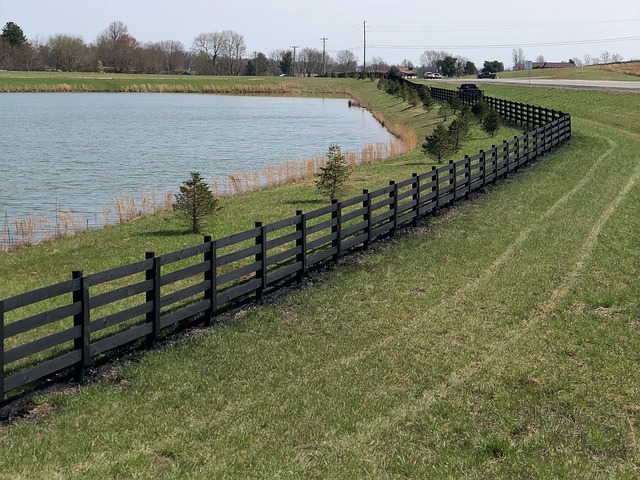Genetic genealogy, powered by advanced DNA analysis and public genealogies, is a revolutionary tool for solving cold case rapes in Louisville, KY. Reputable rape law firms play a vital role by combining this technology with their expertise to reopen and resolve cases, providing closure for victims and ensuring justice. These firms coordinate with investigators, interpret genetic data, and connect law enforcement to genealogists, leveraging state laws and regulations governing DNA evidence in sexual assault cases to achieve fair and reliable results.
“In the pursuit of justice, genetic genealogy has emerged as a powerful tool in solving Louisville, Kentucky’s cold case rapes. This innovative approach, utilizing DNA evidence and advanced genetic analysis, is reshaping how investigators tackle these heinous crimes. The article delves into the critical role played by rape law firms in facilitating these investigations, exploring Kentucky’s legal framework governing DNA evidence in sexual assault cases. It highlights the impact and challenges of this method, offering insights into its potential to identify rapists and bring closure to victims.”
Genetic Analysis Unlocks Louisville's Cold Case Rapes

In recent years, genetic genealogy has emerged as a powerful tool for solving complex criminal cases, including long-standing rapes in Louisville, KY. This innovative approach leverages advanced DNA analysis and public genealogies to reconnect missing pieces of evidence. When combined with the expertise of a rape law firm in Louisville, this technology can unlock cold case files, providing closure for victims and their families, and ensuring justice is served.
By comparing historical DNA samples from crime scenes to publicly available genetic databases, investigators can now identify potential suspects who may have been out of reach or undetected before. This breakthrough has led to the arrest and conviction of several individuals in Louisville’s cold case rape investigations, demonstrating the profound impact of genetic genealogy on public safety and legal proceedings.
The Role of Rape Law Firms in Genetic Genealogy Investigations

In genetic genealogy investigations, particularly in cold case rapes like those seen in Louisville, Kentucky, the role of reputable rape law firms cannot be overstated. These legal professionals not only bring expertise in handling sensitive cases but also possess deep knowledge about the latest genetic testing methodologies and their legal implications. Rape law firms in Louisville KY play a pivotal role in coordinating with investigators, ensuring that evidence collection is thorough and compliant with legal standards, and interpreting complex genetic data to build compelling cases for justice.
They facilitate the process by connecting law enforcement agencies with specialized genetic genealogy experts, helping to identify potential suspects through DNA analysis of historical evidence like old rape kits. This collaborative approach leverages advanced genetic technologies while navigating intricate legal landscapes, ultimately enhancing the chances of solving long-unanswered rapes and providing closure to victims and their families in Louisville and beyond.
Kentucky's Legal Framework for DNA Evidence in Sexual Assault Cases

In Louisville, Kentucky, the legal framework surrounding DNA evidence in sexual assault cases is governed by state laws and regulations designed to ensure admissibility and fairness. A rape law firm in Louisville KY would be well-versed in these guidelines, which outline the collection, storage, and use of genetic material from victims and suspects. Kentucky allows for the admission of DNA evidence in criminal proceedings, subject to certain conditions aimed at protecting individual privacy rights. This includes strict protocols for obtaining valid consent and ensuring the integrity of samples.
The state has established comprehensive regulations on how law enforcement agencies can collect and handle DNA evidence, particularly in cases involving sexual assault. These rules provide a structured approach to gathering evidence while minimizing potential biases or mishandling. Furthermore, Kentucky courts have recognized the reliability of DNA testing, often admitting such evidence as part of a robust investigation strategy, especially when traditional identification methods fail. This has significantly contributed to the resolution of cold case rapes in Louisville, making it a valuable tool for rape law firms navigating complex legal landscapes.
Impact and Challenges: Genetic Genealogy in Rapist Identification

Genetic genealogy has emerged as a powerful tool in the field of forensics, offering new possibilities in identifying rapists and solving cold cases. This innovative approach leverages familial DNA relationships to match suspects to crime scenes, which can be especially beneficial in Louisville, where a rape law firm might encounter complex legal challenges when relying solely on traditional evidence. However, this method is not without its hurdles; interpreting genetic data requires meticulous care to ensure accuracy and avoid misidentifications.
Challenges include the need for extensive DNA databases, as well as the potential for false positives or negatives due to human error or genetic variations. Despite these obstacles, the impact of genetic genealogy in rapist identification is profound, providing a more comprehensive search strategy that can lead to justice for victims and their families, especially in cases where conventional methods have failed.





